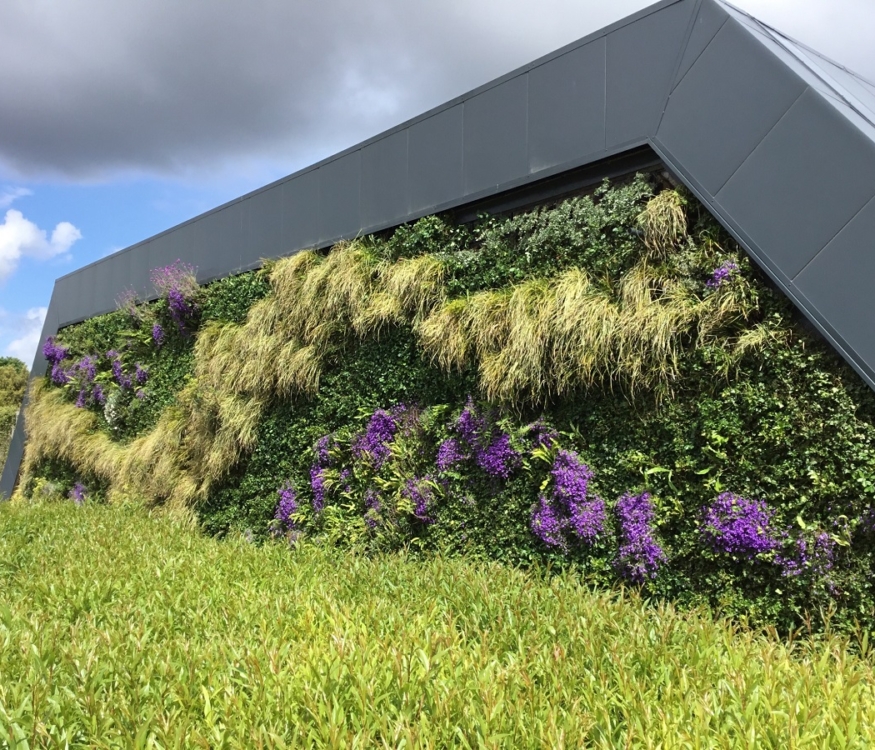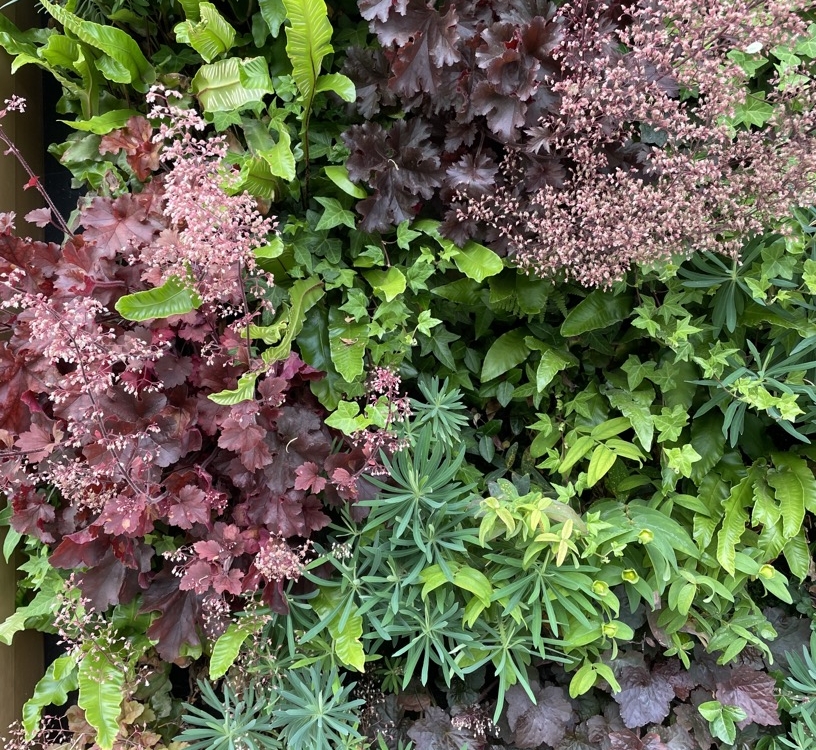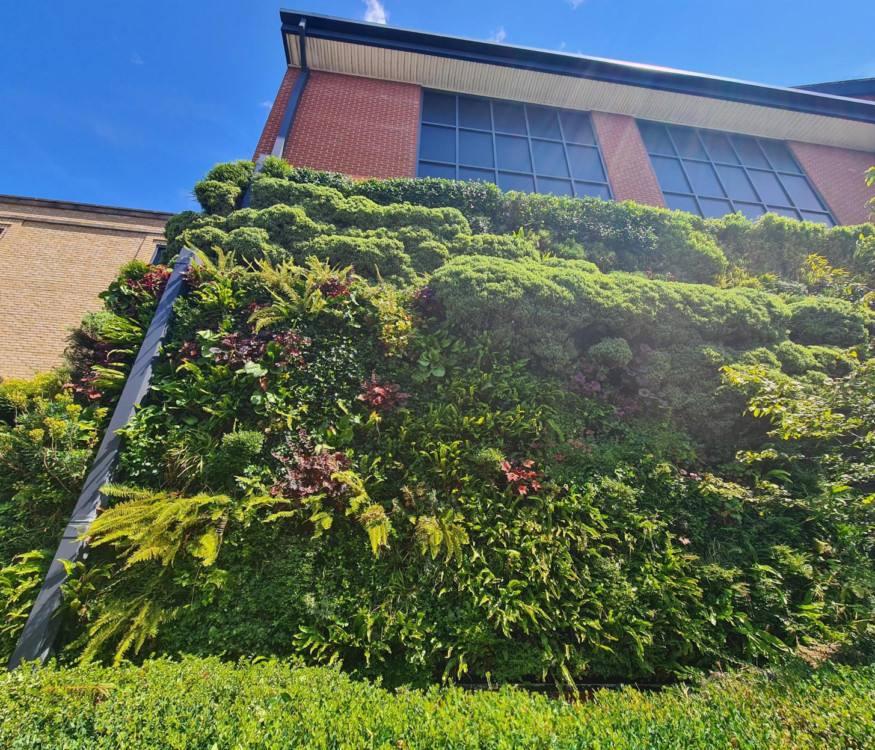The air quality living wall research being carried out at University College London has now been completed with very encouraging initial results.
If you haven’t already seen our News article about the funding we received from Highways and Innovate UK and the testing that it would enable us to do you can visit the page here. You can also read about all the winners of the Highways England air quality and innovation competition on the Innovate UK website.
The study focused on how our Active Airflow Living Wall system, which combines biology with cutting edge technology, would reduce the harmful gases emitted in traffic fumes by using natural filtration. In this round of testing, we wanted to test the Active Airflow system’s ability to mitigate major air pollutants in a laboratory setting.

Traffic on the UK’s roads accounts for 32% of nitrogen oxides in the atmosphere, which has been linked to respiratory diseases, heart disease and lung cancer. Air pollution and how to reduce it, especially in cities where the volume of traffic means that roads are often exceeding the legal limit for nitrogen oxides, is a topic that is at the forefront of a lot of people’s minds at the moment. Our Active Airflow system is designed to address the air pollution problem by creating air pressure that will draw in polluted air through the leaf and root zones of the plants where harmful particulate matter and gas pollutants are removed and allowing the system to output clean air.
This technology also has lots of potential for improving indoor air quality, especially in areas of buildings with limited natural airflow. The health and productivity benefits of improving indoor air quality are well established. This new biological filtration system will have a vast array of potential uses both indoor and outdoor.
As part of our Innovate UK funding Biotecture have also had the opportunity to attend several Highways England events over the last month. The Highways England public engagement conference on the 21st October was an excellent opportunity to connect Biotecture with a cohort of Highways England policy and key decision makers in the air quality field.

Through Innovate UK’s funding of Phase 1 has enabled Biotecture to be at the forefront of integrating biology and technology to convert harmful pollutants into clean air through phytoremediation. Biotecture’s Active Airflow Unit (AAU) prototype was the initiation of this body of work, to which we’ve received extremely encouraging results in the laboratory and have successfully achieved Technology Readiness Level 4 (TRL4) – a key milestone in developing and commercialising this product to a wider market to improve air quality.
The engagement conference in Birmingham also allowed us to speak to other Phase 1 competition winners who each share the same goal of creating an innovative solution to reduce harmful pollutants. Matt Lindsay who attended on behalf of Biotecture felt connected with each of the other competition winners with what they are trying to achieve and was excited by the prospect of working in collaboration alongside these potential partners on new projects.
The next steps will be to optimise the product and perform further testing including a live site test in 2020. This will give us further scope to demonstrate the power of plants and how they can actively reduce pollutants.
If you would like to learn more about the many benefits of living walls for the environment, people and for businesses you can visit our ‘Living Wall Benefits’ page.
If you have a project that you think might benefit from green infrastructure, please email enquiries@biotecture.uk.com




